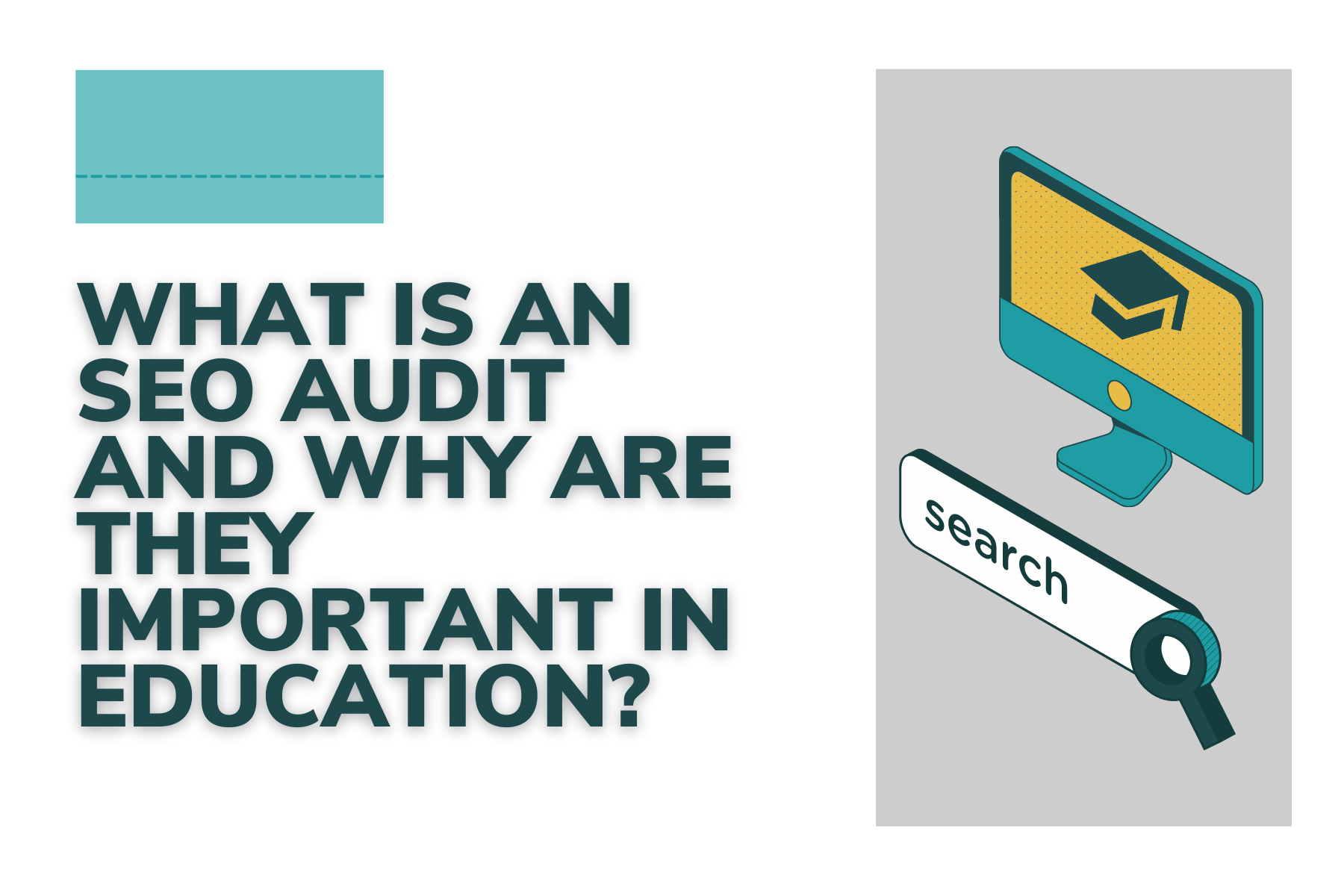An SEO audit is the process of evaluating a website to determine its ability to appear in search engine results pages (SERPs). An SEO audit is performed solely for marketing purposes, to give a better insight in a whole website, specific pages or overall traffic.
Although a website may be well-designed and clean, if search engines can't read your website these aesthetically-pleasing webpages may never be seen by the intended audience. An SEO strategy will help push a website up the search engine results page, increasing both quantity and quality of traffic to that website.
An SEO Audit compromises four parts:
- 1. Technical analysis
- 2. On-Page analysis
- 3. Off-Page analysis
- 4. Competitive analysis and keyword research
1. Technical Analysis
Technical analysis looks at determining whether your website is working properly, the best place to start. It looks at a website's:
- Accessibility
Accessibility looks into how search engines and users access a website. It considers the XML sitemap, which indexes the architecture of a website and which search engine crawlers use to assess the usability of website.
Ideally, there should only be a few clicks for the user to get from the homepage to the destination page, so consider this to optimise SEO usability ranking. Occasionally, pages get deleted so be sure to check redirects are in place to avoid leading web traffic to error messages.
Another thing considered is the speed of a website; if a website loads too slowly traffic is liable to bounce quickly away. Consider image file types, sizes and cache settings to optimise the speed of a webpage.
- Indexability
Indexability refers to the search engine's ability to analyse webpages and present them to users within the search engine. Even if a search engine can crawl a website it may not be able to index all its pages and show them on the search engine results pages.
As with accessibility, this may be down to site structure, internal link structure or looped redirects. Also consider server redirects, unsupported scripts and other technology factors which may cause crawl-ability issues.
There are many tools to help determine and fix access and index issues within a website, Google Search Console and SEMrush are two popular options.
2. On-page Analysis
On-page analysis covers both:
- General content
- Individual pages
General content refers to the topics covered on a website. From an SEO perspective, it is best to stick to topics that are relevant to website's main idea within general content. Let the search engine recognise you as a thought leader in that specific topic, this is better for SERP optimisation.
However, be careful not to duplicate content. Use pillar pages to group topic clusters without writing content that is too similar to existing general content, as this can confuse indexing. Similarly, trying to produce general content that ranks for keywords that a website is already ranking for, can lead to keyword cannibalisation, whereby a search engine will not acknowledge certain content but only that which ranks the highest for a specific keyword.
Individual pages need to have relevant URL's, containing the page's main keyword. As should the page title. Content should be 500+ words to be viewed as such by search engines, generally.
Meta descriptions are an easy win for conversion rates, be sure to include a relevant meta description for each individual page, potentially including a CTA you would like the reader to take. Another easy win is using backlinks in your pages, to improve the quality of the content. It makes it more relevant and trustworthy, as long as the link is to a trustworthy website.
3. Off-Page Analysis
The content on each page first and foremost needs to be valuable to the reader, to encourage engagement, ensure this is the case before trying to optimise SEO ranking! Off-page analysis looks at back links to your website from other websites, which is more likely if the content you have produced is worthy of being linked back too!
It will also look at the bounce rate on your website, the number of social media shares and the volume of traffic. Positive stats from all these will boost a website's SEO ranking as it establishes the website as being trustworthy to the search engine.
4. Competitive Analysis and Keyword Research
Competitive analysis and keyword research all0w you to determine which keywords your competitors are ranking for, which keywords they aren't - which you may be able to consider creating content to rank for - and also the volume of traffic searching for each keyword.
An ideal keyword will have a good amount of web traffic searching for it and not be too difficult to compete for. An audit needs to consider numerous options before deciding upon several keywords which will dictate the website's content; some useful tools for keyword research are ahrefs Keyword Generator, answer the public and Google keyword planner.
Why are SEO Audits important in Education?
SEO audits are important as they create an actionable plan that enables you to:
- Understand the SEO efficiency of your website
- Identify changes needed and how to make them
- Compare your website to competitors, and utilise the findings to your advantage
For education providers it is vital that search engines understand all that the setting has to offer its' students; courses, qualifications, co-curricular, pastoral care. Every aspect of a school or college that makes it unique and the reasons why a student would want to study there.
Students, and prospective families, are becoming increasingly self-aware and the internet has allowed for a wealth of information at their fingertips. When a search for a course that your education setting offers is inputted into a search engine, you want your website to appear on page one of the search - a low volume of traffic will click through to page two!
If a search for 'contemporary music degrees' is input and this is a key offering from your college, you will want to rank for this. Similarly, ranking for specific career options is vital for higher education settings as a means to pointing prospects to specific courses aligned with their career aspirations.
Best practice for SEO Audits within the Education Sector are to undertake an audit before each new term or at the beginning of a new course launch. To find out more about creating an SEO plan read our blog post 'SEO: Making the Most of Your School Website'.
Did you know..
HubGem is an SEMrush Agency Partner, we can help you attract the right people to your website!
Interested in a One-off SEO Audit or an SEO Growth Plan? Find out more:
.png?width=150&height=101&name=HUBGEM%20Logo%20-%20smaller%20logo%20(1000%20x%20673).png)


.png)





